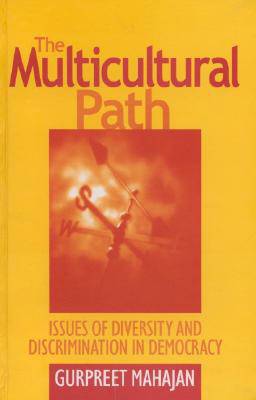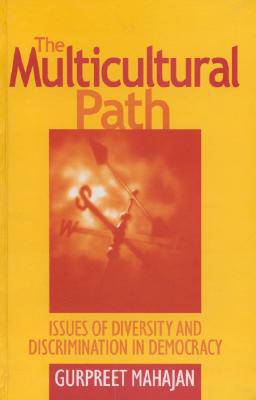
- Afhalen na 1 uur in een winkel met voorraad
- Gratis thuislevering in België vanaf € 30
- Ruim aanbod met 7 miljoen producten
- Afhalen na 1 uur in een winkel met voorraad
- Gratis thuislevering in België vanaf € 30
- Ruim aanbod met 7 miljoen producten
The Multicultural Path
Issues of Diversity and Discrimination in Democracy
Gurpreet MahajanOmschrijving
This book examines existing multicultural alternatives and tries to reconcile cultural rights with individual freedom. The author raises the issue of group equality by examining whether different communities occupying the same social space have the same status in the public domain. This is important as inequality often coexists with degrees of social and legal pluralism. Collective cultural participation does not mean the absence of hierarchy. It exists in the form of authority of the dominant community and the symbols of its power.
This book speaks of issues that are central to democracy. The author has taken up new issues and has attempted to provide a framework within which the rights of the minorities may be discussed. She has raised a whole set of important questions about heterogeneous public culture as against a homogeneous national culture, about political and civil rights of the minorities and about discriminatory
state policies. The author argues that individual rights and community rights must go side by side.
An important book that deals with vital social and political issues based on the Indian experience
Specificaties
Betrokkenen
- Auteur(s):
- Uitgeverij:
Inhoud
- Aantal bladzijden:
- 240
- Taal:
- Engels
Eigenschappen
- Productcode (EAN):
- 9780761995791
- Verschijningsdatum:
- 10/05/2002
- Uitvoering:
- Hardcover
- Formaat:
- Genaaid
- Afmetingen:
- 153 mm x 209 mm
- Gewicht:
- 390 g

Alleen bij Standaard Boekhandel
Beoordelingen
We publiceren alleen reviews die voldoen aan de voorwaarden voor reviews. Bekijk onze voorwaarden voor reviews.











